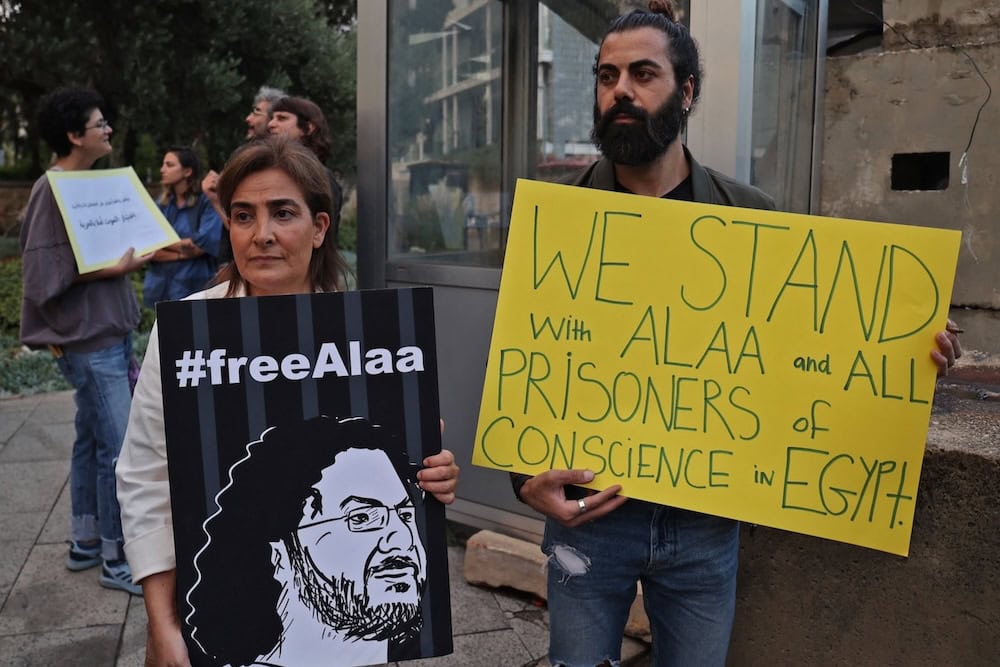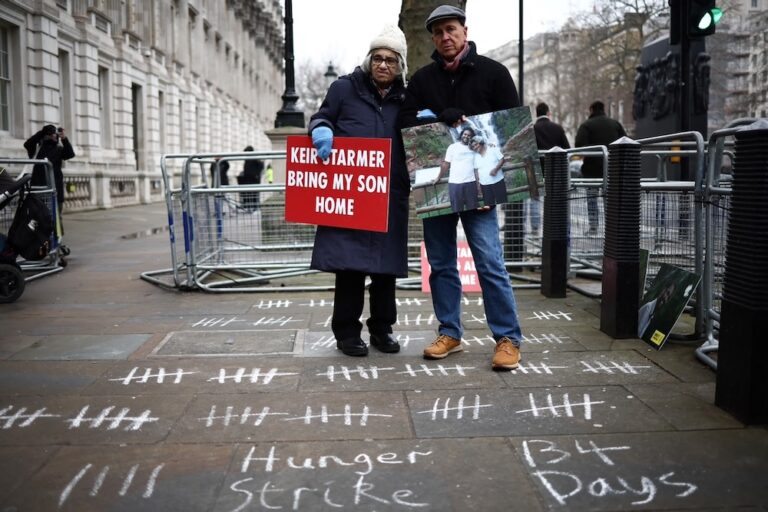Rights groups warn that reducing pretrial detention is futile without ending repressive practices and ensuring judicial independence.
This statement was originally published on cihrs.org on 26 August 2024.
The recent initiatives undertaken by the Egyptian authorities to amend the maximum duration of pretrial detention are futile if not coupled with measures to end the repressive practices of the security apparatus and ensure judicial independence the undersigned human rights organizations asserted today. These steps would require political will that is not currently possessed by the Egyptian authorities, who continue to harass and prosecute political opposition, civil society members, and media figures. Journalists, politicians, and bloggers are among those especially targeted, vulnerable to prosecution under oft-used fabricated charges for a piece of writing, a cartoon or even an online comment that is considered subversive by the authorities.
On 21 August, the presidential spokesman announced that the president had referred the National Dialogue recommendations on pretrial detention to the government. The chief recommendation is to reduce the duration of pretrial detention, as a ‘preventive measure necessitated by the exigency of the investigation’, to prevent it from becoming misused as a form of punishment. This came days after the House of Representatives discussed, on 17 August, a proposal to amend the Code of Criminal Procedure, including provisions related to pretrial detention (Article 143) pursuant to prior recommendations from the National Dialogue.[1] The proposed amendment would reduce the maximum duration of pretrial detention from six months to four for misdemeanors, from 18 to 12 months for felonies, and from 24 to 18 months for crimes carrying a sentence of life imprisonment or death.
The flaws of pretrial detention in Egypt extend far beyond the question of its duration and if these flaws are to be resolved, three fundamental aspects of pretrial detention under the administration of President Abdel Fattah al-Sisi should be addressed. The first issue is the misuse of pretrial detention as a retaliatory measure to punish dissidents, which contravenes its purpose as a preventive measure limited to high-risk criminals. But in all cases against political opponents over the past ten years, the Public Prosecution has automatically approved and renewed pretrial detention, prolonging it past its two-year legal limit. Political case defendants are prosecuted under charges lacking credible evidence, and they are subjected to pro forma examinations lasting mere minutes; as exemplified by the case of illustrator Ashraf Omar, whose detention was renewed on 18 August after a hearing of no more than 15 minutes.[2]
Secondly, the Public Prosecution and Egyptian courts routinely circumvent existing pretrial detention statutes by ‘recycling’ detainees into new cases, in which they face the same or similar charges, immediately after they had been ordered released or had reached the two-year maximum legal duration for pretrial custody. When a detainee is charged under a new case, the time they have spent in pretrial custody in the previous case is disregarded or not counted towards their release. In such cases, the prosecution relies solely on security investigations and deliberately neglects its role of impartially investigating accusations and evidence. In this way, the lives of many people are wasted away in prison without trial. The detention of Ali Fahim, a member of the Zamalek Ultras, was prolonged through the prosecution’s ‘recycling’ of him into more than ten separate cases. Political activist Mohammed Adel, politician Mohammed al-Qassas, lawyer Hoda Abdel Moneim, and activist and blogger Alaa Abd El Fattah, are several of many political dissidents who have been recycled or tried in new cases while being held in custody for other cases, to ensure their continued confinement.
Thirdly, the maximum period of pretrial detention currently defined by law (two years) is often disregarded entirely; defendants may be held in custody, without any legal basis, for over four years. Since her arrest in April 2020, translator Marwa Arafa has remained in pretrial detention pending Case 570 of 2020, Supreme State Security. Human rights activist Ibrahim Metwally has been in prison for seven years for the ‘crime’ of trying to find his son, who was forcibly disappeared more than a decade ago. In such cases, criminal courts are deliberately derelict in their most fundamental duty, which is to calculate the period the accused has been held in pretrial detention, acknowledge when it has exceeded its legal limit, and order their release by the Public Prosecution.
Although reducing the length of pretrial detention is necessary, it will not resolve the fundamental issues related to the utter lack of judicial independence and integrity in Egypt, which is enabled by executive interference and its excessive security violations of the law and fundamental due process rights. Since President Sisi’s call on 26 April 2022 for the National Dialogue, over 1,700 people have been recycled into new cases, and 6,981 people have been arrested and remanded to custody. In contrast, only 1,735 people have been released, as documented by the ‘Until the Last Prisoner’ campaign. Any statutory amendment that simply shortens the lawful duration of detention – which is currently disregarded entirely by the prosecution – is no more than a government campaign in which reforms are announced that deceptively indicate imminent improvement to Egypt’s human rights crisis, in advance of the Universal Periodic Review of its human rights record before the United Nations in January 2025.
[1] Article 143: “…In all cases, the duration of pretrial detention during the preliminary investigation and all other stages of a criminal complaint may not exceed one-third of the maximum custodial sentence. It therefore may not exceed six months for a misdemeanor offense, 18 months for a felony offense, and two years if the offense carries the penalty of life imprisonment or death”.
[2] The security services raided Omar’s home on 22 July. He was arrested and forcibly disappeared for two days before being brought before the Supreme State Security Prosecution on 24 July and charged in case no. 1968/2024/Supreme State Security on charges of spreading false news and joining a terrorist group (Article 12 of Law 84/2015 on counterterrorism and Article 86 of the Penal Code) and misusing social media (Article 102[bis] and Article 188 of the Penal Code).



